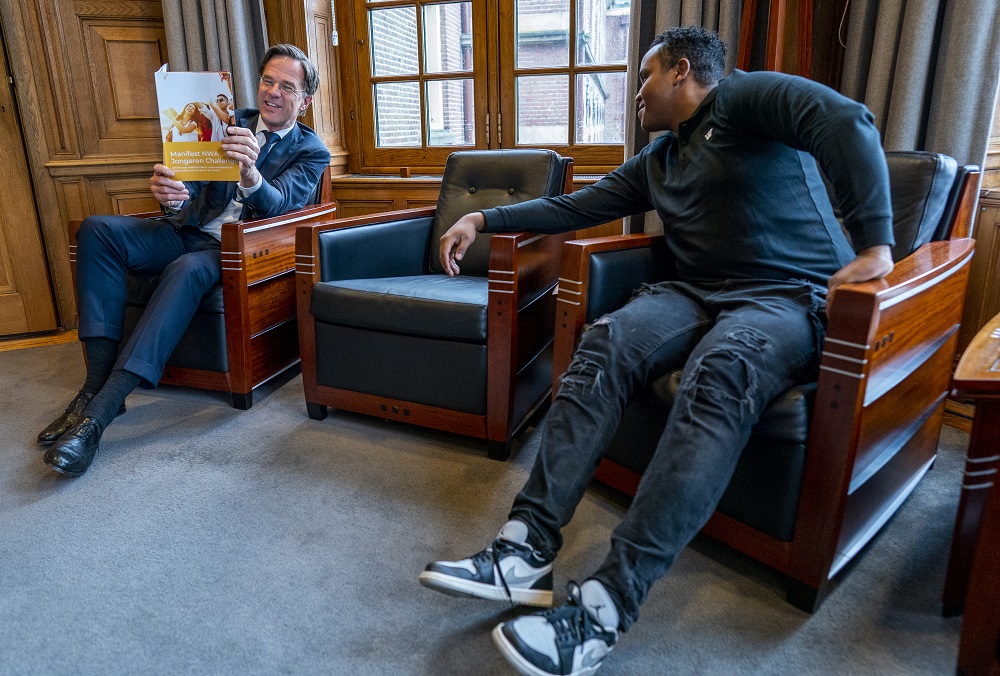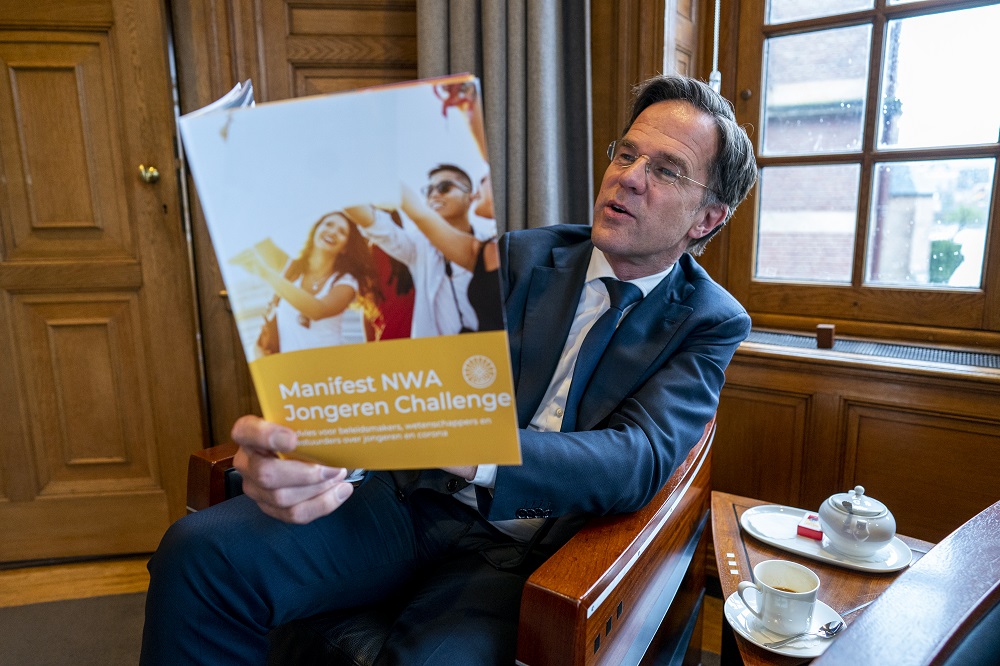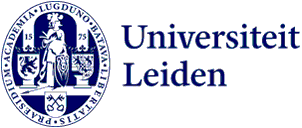Scientists: analyse corona problems with young people themselves
On 30 April, Prime Minister Mark Rutte was presented with the manifesto of the NWO Youth Challenge, which contains advice for policymakers, scientists and administrators on the empowerment of youth in the time of coronavirus. The manifesto is based on research questions submitted to the science community by young people.
Youngsters are deeply engaged with the issues, and with their alternative insights and ideas they can make a positive contribution to decision-making in relation to the coronavirus pandemic in the Netherlands.
Almost a year ago, during a press conference on 19 May 2020, Prime Minister Mark Rutte called on young people to help think about the country’s future during and after the corona crisis. The Dutch Research Agenda seized on this appeal to organise a project for young people who were willing take up the challenge. They responded by submitting numerous research questions and joined with scientists, including Professor of Child Law Ton Liefaard of Leiden Law School, in searching for answers to them. One of those questions concerned the impact of the corona crisis on vulnerable youngsters.
Four in ten young people are in a vulnerable situation
One of the studies for the NWA Youth Challenge showed that 4 in 10 young people between the ages of 16 and 24 are in a vulnerable situation. Not because of physical or psychological complaints, but because they deny themselves important life experiences out of a sense of responsibility towards vulnerable family members. They are suffering more from the coronavirus crisis and report mental problems such as anxiety or depression more often than youths who are not in a similarly vulnerable situation
Odilia Laceulle, a development psychologist, says of the results: ‘A surprising outcome is the large number of young people who say they are in a vulnerable situation. Not because they personally have physical or psychological complaints, but because their housemates are vulnerable. Because they are confronted with the potential consequences of corona more than their peers, they adhere strictly to the corona measures. But at the same time, they seem to be having a harder time of it than other young people. They also suffer more from emotional problems, such as feelings of anxiety and depression. They also miss important characteristic milestones for people in this age group, such as making their own decisions, learning to manage their money, dealing with intimacy and sexuality or finding a part-time job. There should be a lot more attention for this large group of young people.’
Manifesto on young people and corona
Laceulle and four other top scientists and their research teams joined forces with young people to start searching for answers to the questions submitted by the young people about the coronavirus crisis. On the basis of what they learned, the researchers have drafted a joint manifesto on young people and coronavirus for policymakers, scientists and politicians. ‘Involving young people in science and policy has enormous added value, especially in times of crisis like this pandemic,’ concludes Eveline Crone. ‘This generation is extraordinarily creative. Research has shown that their brains are still developing at this age, and that generates genuinely new insights and ideas.’
In the manifesto the scientists recommend involving young people in the formulation of policy through a strategy of co-creation, by incorporating the insights of young people in policies and by making policies and the results of research far more accessible.
-

Prime Minister Mark Rutte was presented with the manifesto of the NWO Youth Challenge (Photo: Jerry Lampen) -

Prime Minister Mark Rutte and Mohamed Guled (Photo: Jerry Lampen) -

Prime Minister Mark Rutte with the manifesto (Photo: Jerry Lampen)
Dutch Research Agenda
The challenge and the ensuing manifesto are an initiative of the Dutch Research Agenda (NWA). The agenda is the result of an innovative process driven by input from scientists and the general public. With this approach, the NWA focuses on social challenges that need to be addressed on a national scale. The NWA draws on the combined strengths of diverse individuals and organisations and promotes cooperation among scientific institutions, the business community and civil-society organisations. The NWA is engaged in a wide range of activities designed to communicate the results of scientific research in a manner that is accessible to a wide audience.
